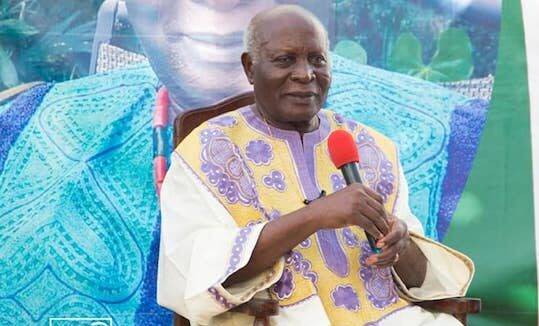
“The Unattached” is a single act play with four scenes. The play discusses the complex discourses that surround the adolescent girl’s sexual and reproductive life and health in contemporary Ghanaian society. There are three main (major) characters in the play: Tina, a shy and almost timid, unsophisticated 16-year-old girl; Liz, a surrealistic 19-year-old girl, and an old male medical doctor.
Through characterisation, Lade Wosornu portrays contemporary Ghana as a space of complex hybridity. On the one hand, there are people who still adhere to old strict traditional norms and practices regarding teenage girls’ sexual/reproductive life. This group of people is represented by Tina who finds a discussion of her (and her friend’s) sexual life with a male adult, Dr OP Asem, highly inappropriate and unacceptable. Tina believes that contraception should have no place in a girl’s life and that a single girl/woman has no business being sexually active, and a married girl/ woman simply has to make babies until she cannot make any more babies, naturally.
On the other hand, there are people in this space who believe they have been liberated by modernity and science. This group of people is represented by Liz, who appears to be sexually very permissive. She speaks and behaves more like an adult than a teenager. She talks about sexual/reproductive stuff with authority – in fact, she even considers herself a coach to other girls (, e.g., Tina and Baby Rose) as far as sexual/reproductive health matters are concerned, including contraception.
Liz does not call Dr OP Asem, an older male doctor by his first name, Paul, but she openly and shamelessly discusses her knowledge about sexual/reproductive health issues, a taboo topic in traditional Ghanaian culture, with him. In this regard, Wosornu, through the character Liz, challenges the traditional views and norms on many facets of life including adolescent girls sexual/ reproductive health. Another way Liz challenges these traditional views/norms is through activism. She dedicates herself to actively encourage/urge other girls to speak about their sexual/ reproductive life. She also challenges the ethics of the norms of many traditional institutions in society including the church (who carry prejudices about people even when they are dead), the education system (which kicks teenage girls out of school because of sexual/reproductive health issues), the legal system (which puts restrictions on (and even criminalises) what decisions/ choices teenage girls can/cannot make concerning their own sexual/reproductive health, e.g., contraception and abortion of unwanted pregnancies. By challenging these institutions, Liz becomes the voice of the voiceless teenage girls in Ghana – she takes it upon herself to teach other teenagers (Baby Rose and Tina), and to point them to sources of information (Dr. OP Asem) so they can take charge of their own sexual and reproductive health issues.
The third major character, Dr OP Asem, appears like a traditional old bad man who does not correct erring youngsters. For instance, when Liz calls him by his first name, he does not reprimand her (as Ghanaian culture demands). Again he is seen encouraging the teenage girls to tell him about their sexual/reproductive life experiences, including their knowledge about contraception. In this regard, Dr OP may be seen by traditionalists as a pervert who takes delight in listening to ‘bad girls’ stories instead of advising/telling them about the dangers of pre marital sexual behaviour including contraceptive use.
Nevertheless, it is also true that by allowing and encouraging the girls to tell him what they do and/ or know about teenage girls sexual/reproductive health, including contraception, Dr OP Asem is able to fill in the gaps, correct erroneous conceptions and new information as an expert. In this regard, Wosornu uses Dr Asem to represent the new voice we must have in teenage sexual/ reproductive health discourses in Ghana. Dr OP Asem represents a voice that recognises the realities in the world we live in – a world of information where (mis)information is only a button/click away. As is evident in the play, both Liz and Tina attribute the sources of their information to ‘hearsay’. Through Dr OP Asem’s character, Lade Wosornu seems to be advocating that we recognise the real danger (Baby Rose’s death) in keeping teenage girls sexual reproductive health issues as a taboo and allowing teenage girls to experiment with the barrage of (mis)information around them. Instead, we must open up the discourses on teenage sexual reproductive health issues to allow teenagers to share what they read/know have so that the play can be properly guided. Wosornu concludes the play by dispelling the unspoken traditional notion that open discussion/discourse on sexual/reproductive health issues will destroy/erode the sexual purity of teenagers (girls) – in spite of all the talk, advocacy and apparent deep knowledge about sexual/reproductive health issues, Liz is STILL, A VIRGIN!
I recommend this book to all girls who have started their menses as well as parents with teenage or menstruating children.
BY PROFESSOR GLADYS NYARKO ANSAH
[Professor Gladys Nyarko Ansah of the English Department,
University of Ghana, Legon]




